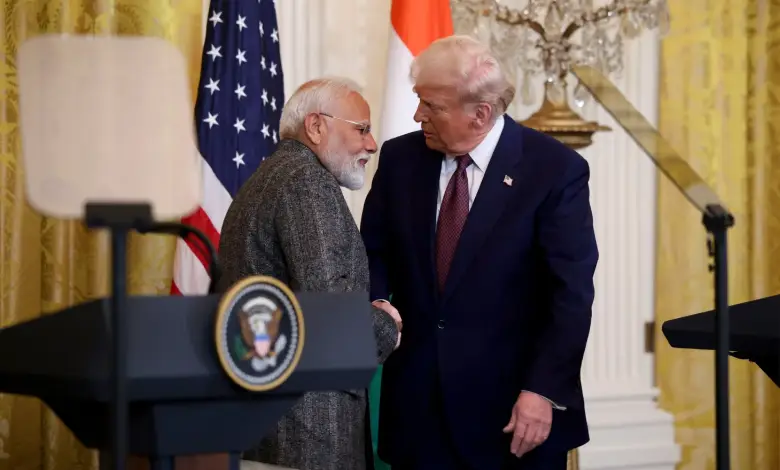New Delhi: Indian Prime Minister Narendra Modi reportedly declined at least four phone calls from former US President Donald Trump in recent weeks, according to the German newspaper Frankfurter Allgemeine Zeitung (FAZ). The daily suggested Modi’s decision reflected not only his growing displeasure but also calculated caution in dealing with Trump.
As per FAZ, Trump made repeated attempts to reach Modi even as his administration imposed a 50% tariff on Indian goods the steepest duty levied on any country apart from Brazil. Washington also penalized New Delhi for purchasing crude oil from Russia, further adding to tensions.
The revelations were shared on X by Thorsten Benner, Co-Founder and Director of the Berlin-based Global Public Policy Institute, who posted excerpts from the FAZ article.
Trump’s confrontational trade approach, FAZ noted, often capitalized on other nations’ dependence on the US market. However, Modi resisted such pressure during Trump’s first term, choosing cooperation while safeguarding India’s economic interests. This time, however, the German outlet said Modi’s refusal to engage underscored how deeply he felt provoked.
FAZ further explained Modi’s caution by citing Trump’s past record. The newspaper recalled how Trump once altered a painstakingly negotiated trade pact with Vietnam during a single phone call with General Secretary To Lam and later announced on social media that an agreement was finalized, even though no consensus had been reached. According to FAZ, Modi was determined not to fall into a similar trap.
The bilateral rift widened after Trump described India as a “dead economy” during remarks on July 31. Just days later, on August 10, Modi responded indirectly, reaffirming India’s ambitions to be among the world’s top three economies. FAZ described this as a clear sign that Modi had taken offense.
The New York-based India-China Institute’s Co-Director Mark Frazier told FAZ that Washington’s Indo-Pacific strategy which envisioned India as a cornerstone in countering China was faltering. He argued that India never intended to fully align itself with the US against Beijing, instead pursuing its own strategic interests.
Tensions also simmered over Trump’s dealings with Pakistan. FAZ reported that Indian officials were angered when Trump claimed sole credit for brokering a ceasefire in the 2019 India-Pakistan conflict, suggested India could import oil from Pakistan, and even hosted Pakistan’s army chief Asim Munir at a working dinner in the Oval Office.
FAZ also highlighted Trump’s controversial business links in India. Near Delhi, luxury towers bearing his name comprising 300 apartments priced up to €12 million each sold out in a single day in May. Such ventures gained attention amid the larger diplomatic friction.
India Issues Clarification on India-US Calls
India’s Ministry of External Affairs (MEA) clarified that Modi’s last conversations with Trump took place on June 17 and July 17 at the US President’s request. The MEA said the discussions lasted about 35 minutes and included Trump’s condolences for the April 22 terrorist attack in Pahalgam and talks about India’s counterterrorism efforts during “Operation Sindoor.”
However, the ministry firmly dismissed Trump’s claims of mediating between India and Pakistan or negotiating a trade pact. “Prime Minister Modi clearly conveyed to President Trump that at no point was there any discussion on an India-US Trade Deal, or any proposal for US mediation between India and Pakistan,” the MEA stated.
It added that the decision to cease military action in May was a direct bilateral move between India and Pakistan, initiated by Islamabad—not influenced by Washington. “There is complete political consensus in India on this matter,” the MEA stressed.
As Modi heads to the Shanghai Cooperation Organization (SCO) summit in Tianjin later this week, FAZ suggested Trump’s policies may inadvertently be driving New Delhi closer to Beijing.
